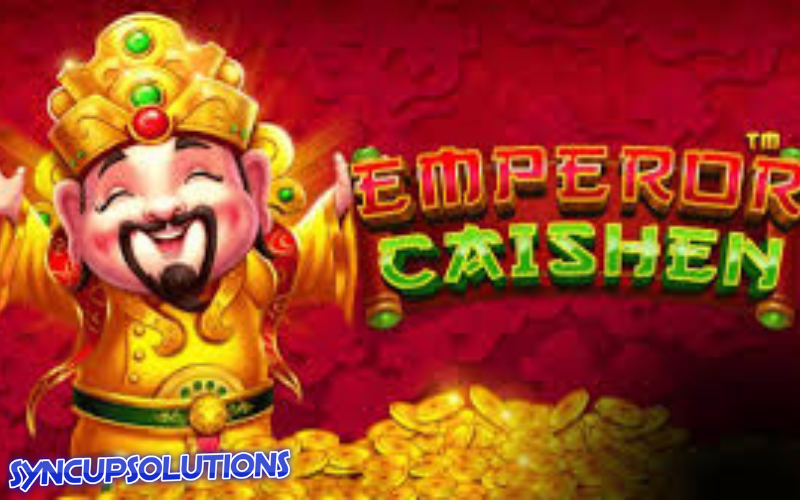UNVEILING THE LEGENDARY EMPEROR CAISHEN BRINGER OF WEALTH AND FORTUNE
Unveiling Emperor Caishen: A Legendary Wealth Bringer
Step into the realm of ancient legends and prosperity as we uncover the enigmatic figure of Emperor Caishen, a revered symbol of abundance and good fortune in Chinese culture. Who is this mystical figure, and what secrets does he hold that continue to captivate hearts and minds?
Legend has it that Emperor Caishen bestows wealth and prosperity upon those who pay him homage with sincerity and reverence. But beyond the folklore lies a deeper significance that transcends mere material gain. Join us on a journey to unravel the timeless teachings and wisdom attributed to this legendary deity.
In this blog post, we delve into the rich tapestry of stories surrounding Emperor Caishen, exploring the cultural significance and enduring legacy that continues to shape beliefs and practices today. Discover the profound lessons in gratitude, generosity, and integrity that lie at the heart of this revered figure, offering timeless guidance for navigating the complexities of modern life.
Prepare to embark on a quest for abundance and fulfillment as we unlock the mysteries of Emperor Caishen, a symbol of hope and prosperity in a fast-paced world seeking meaning and connection. Join us as we journey through the realm of ancient wisdom and unveil the transformative power of embracing the spirit of wealth and well-being embodied by Emperor Caishen.

The Origin and Legend of Emperor Caishen
Emperor Caishen, often revered as the deity of wealth and prosperity in Chinese culture, boasts a rich historical background that intertwines with legends of abundance and fortune.
HISTORICAL BACKGROUND OF EMPEROR CAISHEN
Emperor Caishen’s origins can be traced back to ancient China during the Ming Dynasty. It is said that Caishen was a mortal named Zhao Gongming, known for his exceptional leadership and generosity towards the less fortunate. Due to his virtuous deeds, Zhao Gongming was posthumously deified as Emperor Caishen, the God of Wealth.
THE DIVINE ATTRIBUTES AND SYMBOLISM OF EMPEROR CAISHEN
Emperor Caishen is often depicted adorned in lavish robes and carrying symbols of prosperity such as the Ru Yi scepter, which represents power and authority. His presence is believed to bring good fortune, success in business endeavors, and overall wealth to those who worship him devoutly. In Chinese culture, offerings of incense, fruits, and other delicacies are made to Emperor Caishen during various festivals and celebrations to seek his blessings.
Emperor Caishen symbolizes not only material wealth but also spiritual richness, emphasizing the importance of sharing prosperity with others and cultivating a generous spirit. His legends inspire hope and optimism, teaching believers to strive for success through hard work, integrity, and kindness towards fellow beings.
EMPEROR CAISHEN IN CHINESE CULTURE
Emperor Caishen holds a revered position in Chinese culture, embodying the spirit of wealth and prosperity. Let’s delve into his significance in both ancient folklore and modern-day Chinese practices and festivals.
CAISHEN’S ROLE IN CHINESE FOLKLORE
In Chinese folklore, Caishen is known as the God of Wealth and is believed to bring good fortune and prosperity to those who worship him. He is often depicted in traditional attire with symbols of wealth, such as the Ru Yi scepter and a golden ingot. People pray to him for financial success, abundance, and overall prosperity in their lives.
Legend has it that Emperor Caishen was originally a mortal named Zhao Gongming, who lived during the Eastern Han Dynasty. Due to his generosity and kindness, he was eventually deified as the God of Wealth. His presence is especially prominent during the Chinese New Year, where offerings are made to him to invite wealth and blessings for the upcoming year.
EMPEROR CAISHEN IN MODERN CHINESE PRACTICES AND FESTIVALS
In modern-day Chinese culture, Emperor Caishen remains a central figure in practices related to wealth and abundance. Business owners, entrepreneurs, and individuals seeking financial success often pay homage to Caishen by displaying his image in their homes or businesses, hoping to attract prosperity and good fortune.
During festivals like the Spring Festival and Lunar New Year, elaborate ceremonies and rituals are performed to honor Emperor Caishen and seek his blessings for the year ahead. Offerings of incense, fruits, and other traditional items are made to show respect and gratitude for the prosperity he brings.
Emperor Caishen’s influence extends beyond material wealth, as he is also believed to bring spiritual richness and abundance to those who worship him devoutly. His presence in Chinese culture serves as a reminder of the importance of generosity, kindness, and gratitude in attracting prosperity and blessings into one’s life.
WORSHIP AND OFFERINGS TO EMPEROR CAISHEN
Emperor Caishen, the revered deity of prosperity and wealth, is worshiped by many devout followers who seek his blessings in their financial endeavors. The rituals and offerings made to Emperor Caishen are steeped in tradition and significance, reflecting the deep-rooted belief in his ability to bestow fortune upon his devotees.
CONCLUSION
Emperor Caishen, the legendary wealth bringer, has captivated minds and hearts with his tales of prosperity and abundance. Unveiling the mysteries surrounding this enigmatic figure sheds light on the power of belief and the allure of boundless riches. As we delve into the lore of Emperor Caishen, we uncover timeless lessons on fortune, luck, and the unwavering spirit of those who dare to dream. Let his legacy inspire us to embrace opportunity, cultivate gratitude, and forge our path to financial success. In a world filled with uncertainty, may the wisdom of Emperor Caishen guide us towards a future brimming with prosperity and good fortune.

